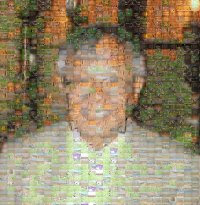Since there was a shortage of space in the universities in Taiwan during 1953 and the following years, the Ministry of Education in Taiwan started a new system which required all universities on the island to give one unified exam. Students with high grades got the choice of their Department in a particular university. Students with lower grades would be assigned to their second or third choices, etc. In this way all positions would be filled at the end. All high school students usually graduated in June, then they could all take one exam in July. By August the grades would be published and the distribution of students to positions would follow immediately until every position was filled. In September, all new college students would start their classes in the Universities of their choice, according to the order of their choice on their application forms. Generally good University Departments were filled first with the higher grade students.
After the excitement of the 5-24 incident, students quickly returned to a serious mood - especially graduates who were worrying about their preparation for the entrance exams and their decision about the order of choices. There were three major exams, one for physical sciences (which included engineering, sciences, and medicine), a second one for literature (languages, arts and music, history, philosophy, library science, and social sciences) and a third category which included agricultural fields (such as anything related to plants, animals etc). Each category had a set of six subjects for testing. A maximum of 600 points could be achieved. In 1957, if your total was above 300, you could enter National Taiwan University, which was what the majority of students wanted during that time. When the exam time came, it took two days to complete the six subjects. There were two hours allocated for each subject with some rest time in between. It was a two-whole day affair. Janice went to see the battlefield in 1969 when we visited Taiwan. She identified that as the main reason she did not want to consider the jobs offered to us in Taiwan, since she did not want our children to suffer through the examination process! While I was trying to prepare for the exam in 1957, just before the end of June, I was called by the FBI equivalent organization in Taiwan for an "interview". Everyone in the family was scared. It turned out that they were interested in having me identify all the people I knew who appeared in the parade during the 5-24 incident. There were pictures and movie films of all the events. I went there twice to see all the records and identified everyone I could recognize. That took my precious time, needed for study!
My entrance exams came and went like dreams, in July 1957. No details could be recalled today! Somehow in August, there was a co-worker of Father who worked in the distribution center for making sure the details of assigning students to the right department with proper grades was done properly. He came to tell us that I was assigned to the Chemistry Department of National Taiwan University. That was how my destiny was sealed!














